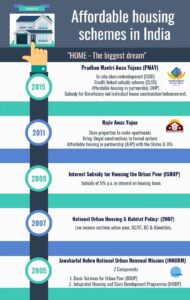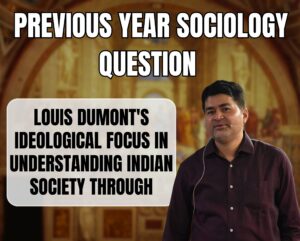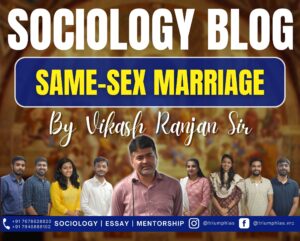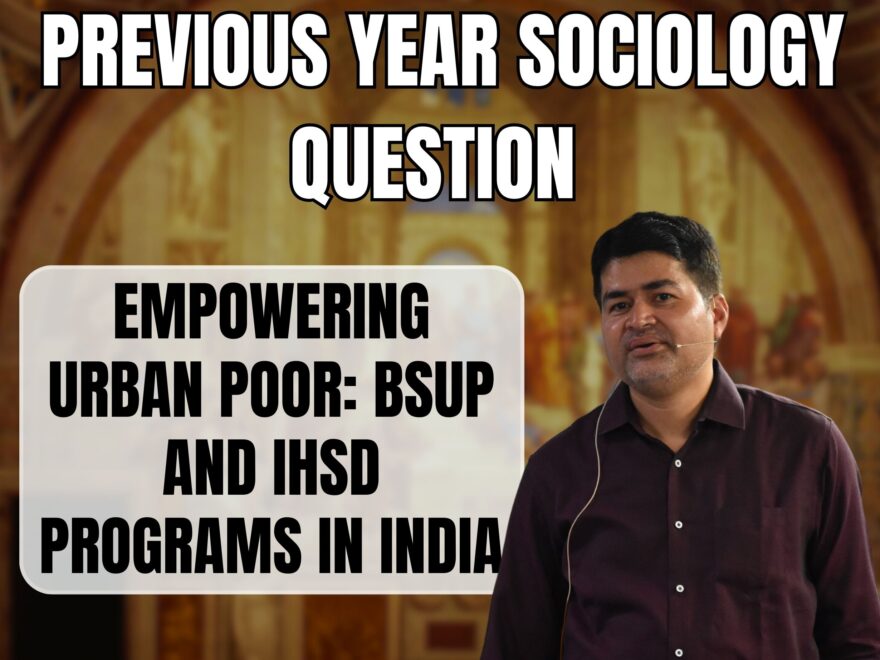Write a note on Basic Services to Urban Poor (BSUP) and Integrated Housing And Slum Development (IHSD ) programmes provided for the urban poor.
Section: B
Sociology Paper 2018
(Paper 2: Unit-13 Social Changes in India: Industrialization and Urbanisation in India; Poverty, deprivation and inequalities)

Question: Write a note on Basic Services to Urban Poor (BSUP) and Integrated Housing And Slum Development (IHSD ) programmes provided for the urban poor.
(10 Marks)
|
Introduction: Significance of BSUP and IHSD Addressing Housing and Infrastructural Needs Main Body: Basics about The BSUP and IHSD Highlighting Objective, Components and Implementation, then Impact of these Programmes Conclusion: Addressing Challenges and Role of Personality System in Welfare State |
Introduction
Basic Services to Urban Poor (BSUP) and Integrated Housing and Slum Development (IHSD) are two significant government programs in India aimed at addressing the housing and infrastructure needs of urban poor populations.
Main Body
Basic Services to Urban Poor (BSUP):
- Objective: BSUP is a centrally-sponsored scheme under the Jawaharlal Nehru National Urban Renewal Mission (JNNURM), which was launched in 2005. The primary objective of BSUP is to improve the living conditions and quality of life for urban poor communities residing in slums and informal settlements.
- Components: BSUP focuses on providing essential urban services and amenities to slum dwellers. These services include housing, water supply, sanitation, sewage, and solid waste management. The program also aims to create livelihood opportunities for the urban poor.
- Implementation: The implementation of BSUP involves active participation from state governments, urban local bodies (ULBs), and community-based organizations. It encourages community involvement in decision-making processes related to infrastructure development and housing.
Integrated Housing and Slum Development (IHSD):
- Objective: IHSD is another government program aimed at the rehabilitation and improvement of slum areas in urban centres. It is designed to address the housing and infrastructure needs of urban poor families residing in slums and informal settlements.
- Components: IHSD encompasses a holistic approach to slum development. It includes the construction of pucca (permanent) houses for slum dwellers, along with the development of necessary infrastructure like roads, drainage, sanitation facilities, and community spaces.
- Implementation: The program is usually implemented by state housing boards or development authorities in collaboration with local bodies. Community participation and involvement are encouraged in the planning and execution of IHSD projects.
Impact:
Functional analysis:
- BSUP has contributed to improving the living conditions of urban poor families by providing access to basic services like housing, clean water, sanitation, and livelihood opportunities. It has helped in changing culture of poverty.
- It has also helped in reducing the proliferation of slums in urban areas.
- IHSD has had a positive impact on slum dwellers by providing them with improved housing conditions and access to basic services. It aims to uplift the socio-economic status of urban poor families and promote inclusive urban development.
- These programmes helped in tackling issues of homelessness the worst form of exclusion as highlighted by Anthony Giddens.
- These have helped in women empowerment as it helps in saving time in various household activities and girl child can utilise the time in education attainment.
- Better amenities and housing facilities helps in reducing incidence of diseases and prevent further marginalisation due to loss in wealth and time.
Dysfunctional analysis:
- Slums are even toady the reality of urban landscape and even these are proliferating.
- The culture of poverty is still present. Sometimes slum dwellers instead of shifting to these houses put these house on rents and hence perpetuating culture of poverty.
- Iron cage of rationality and top down approach prevented community participation and there are implementation gaps also present.
Conclusion
S C Dube has highlighted the role of removal of discrepancies between the mentalities of planners. Similarly there is need to shift focus from government aid towards initiative of people and mobilising their motivation so that the impact of such programmes can be seen and the ideal of welfare state can be realised.
Related Blogs …
 |
 |

To master these intricacies and fare well in the Sociology Optional Syllabus, aspiring sociologists might benefit from guidance by the Best Sociology Optional Teacher and participation in the Best Sociology Optional Coaching. These avenues provide comprehensive assistance, ensuring a solid understanding of sociology’s diverse methodologies and techniques.
META TAGS:
BSUP, IHSD, urban poor, housing, infrastructure, India, JNNURM, slum development, community participation, socio-economic impact, culture of poverty, welfare state, S C Dube, housing and slum development
Why Vikash Ranjan’s Classes for Sociology?
Proper guidance and assistance are required to learn the skill of interlinking current happenings with the conventional topics. VIKASH RANJAN SIR at TRIUMPH IAS guides students according to the Recent Trends of UPSC, making him the Best Sociology Teacher for Sociology Optional UPSC.
At Triumph IAS, the Best Sociology Optional Coaching platform, we not only provide the best study material and applied classes for Sociology for IAS but also conduct regular assignments and class tests to assess candidates’ writing skills and understanding of the subject.
Choose The Best Sociology Optional Teacher for IAS Preparation?
At the beginning of the journey for Civil Services Examination preparation, many students face a pivotal decision – selecting their optional subject. Questions such as “which optional subject is the best?” and “which optional subject is the most scoring?” frequently come to mind. Choosing the right optional subject, like choosing the best sociology optional teacher, is a subjective yet vital step that requires a thoughtful decision based on facts. A misstep in this crucial decision can indeed prove disastrous.
Ever since the exam pattern was revamped in 2013, the UPSC has eliminated the need for a second optional subject. Now, candidates have to choose only one optional subject for the UPSC Mains, which has two papers of 250 marks each. One of the compelling choices for many has been the sociology optional. However, it’s strongly advised to decide on your optional subject for mains well ahead of time to get sufficient time to complete the syllabus. After all, most students score similarly in General Studies Papers; it’s the score in the optional subject & essay that contributes significantly to the final selection.
“A sound strategy does not rely solely on the popular
Opinion of toppers or famous YouTubers cum teachers.”
It requires understanding one’s ability, interest, and the relevance of the subject, not just for the exam but also for life in general. Hence, when selecting the best sociology teacher, one must consider the usefulness of sociology optional coaching in General Studies, Essay, and Personality Test.
The choice of the optional subject should be based on objective criteria, such as the nature, scope, and size of the syllabus, uniformity and stability in the question pattern, relevance of the syllabic content in daily life in society, and the availability of study material and guidance. For example, choosing the best sociology optional coaching can ensure access to top-quality study materials and experienced teachers. Always remember, the approach of the UPSC optional subject differs from your academic studies of subjects. Therefore, before settling for sociology optional, you need to analyze the syllabus, previous years’ pattern, subject requirements (be it ideal, visionary, numerical, conceptual theoretical), and your comfort level with the subject.
This decision marks a critical point in your UPSC – CSE journey, potentially determining your success in a career in IAS/Civil Services. Therefore, it’s crucial to choose wisely, whether it’s the optional subject or the best sociology optional teacher. Always base your decision on accurate facts, and never let your emotional biases guide your choices. After all, the search for the best sociology optional coaching is about finding the perfect fit for your unique academic needs and aspirations.
Follow us :
🔎 https://www.instagram.com/triumphias
🔎https://www.youtube.com/c/TriumphIAS
https://t.me/VikashRanjanSociology
Find More Blogs
|
Scope of the subject and comparison with other social sciences |
|||
|
|
|
|
Modernity and social changes in Europe |

